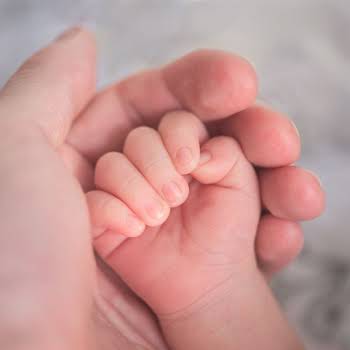
By IMAGE
01st Dec 2015
01st Dec 2015
Fertility is a hot topic of the moment. But with all the noise out there, it can be difficult to separate the facts from the speculation and rumours. We’ve enlisted the help of fertility nurse and Head of Clinical services with My Fertility Check, Mary McAuliffe, to bust those fertility myths and tell it like it is.
1. Myth: Women can have a baby easily enough until they’re in their 50s.
Truth: This is one myth that needs serious busting! A woman’s fertility is already declining at 30 years of age and, after the age of 35 there is a very pronounced decline. It can be really challenging for women over the age of 40 to become pregnant, even with IVF treatment. It has long been suspected that the celebrities having babies in their mid and late forties are using donor eggs from younger women.
2. Fact: Smoking is bad for fertility.
This is true. As with everything else related to your health, smoking reduces your fertility potential, so kick the habit now.
3. Myth: IVF treatment is the first step when you can’t become pregnant.
Truth: Despite its high success rates, IVF is not recommended straight away for all patients who attend a fertility clinic. Many women and couples can become pregnant with lifestyle changes or with the help of simpler treatments such as Ovulation Induction.
4. Fact: Maintaining a healthy weight is good for your fertility.
Women who are either underweight or overweight are more likely to have problems conceiving. Women who don’t consume enough calories and essential fats every day are at a greater risk of not ovulating. Being overweight or obese can likewise have a negative effect on fertility as it can interfere with normal hormone function.
5. Myth: Infertility is predominantly a woman’s problem.
Truth: Myth. People are often surprised to hear that it is just one-third of fertility problems that are female. One-third are actually male, and another third are a combination of the couple. So, ladies, you are by no means alone.
6. Myth: Holding your legs in the air for 20 seconds after having sex will help you become pregnant.
Truth: Myth. The logic behind this is that the position will tilt your pelvis, allowing your man’s swimmers an easier route into your womb to connect with your egg – all it’s really likely to do however is to make your legs go numb. The sperm is chemically programmed to travel straight to your womb and your egg, no matter what position you are in. So you may as well get comfortable.
7. Myth: Being on the pill for a prolonged time will decrease your fertility.
Truth: Myth. Once you stop using the pill, your menstrual cycle should regulate in a matter of weeks. A lot of women think it can take up a year to regulate and during this time their chance of pregnancy is reduced. Not true. A medical study of 200 women who were on the pill for a year showed that 40% became pregnant one month after stopping the pill, while 99% either had a normal period or became pregnant three months post-pill.
8. Fact: Certain vitamins and supplements can help with fertility.
This is true to a degree. While they won’t have a huge influence on fertility, certain vitamins and supplements can support your reproductive health. Those I would recommend include folic acid for both men and women, Vitamin D for bone health and embryo development and Vitamin C for healthy sperm and egg production.
9. Myth: Wait until your temperature goes up before having sex to boost your chance of becoming pregnant.
Truth: Myth. Waiting until your temperature goes up to have sex will actually reduce your chance of becoming pregnant by about half. This is because the spike in temperature happens after the egg has been released from your ovary. It’s better to have sex the day before you normally ovulate – as the sperm can live inside the vaginal tract for several days.
10. Fact: Having more sex increases your chance of pregnancy.
The great news is this is true. New research from the University of Indiana has shown that the more women have sex outside of their fertile window; the more their bodies are primed for pregnancy when they have sex while ovulating. While the research is novel (September 2015), I would recommend having sex two to three times a week when trying to conceive. So take care of each other, communicate and have fun!
For more information, check out?http://myfertilitycheck.ie/























